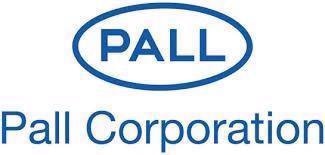In the food and beverage industry, the flavor market is a key tenet. This is because numerous companies compete on parameters like taste, cost, quality and texture.

The flavor market's growth is driven by innovation, adoption of new technology, and creativity, fueled by increasing demand for healthy and convenient food and changing consumer lifestyles.
Consumers are trying to identify healthier food and beverage choices but do not want to compromise on quality or taste. With that knowledge in mind, the goal of flavor houses is to innovate, source, create and market the most authentic, purest flavors.
Driven by new global trends, the flavors industry is leaning towards organic and natural ingredients. With the base set for innovation, flavor houses are focusing on exotic and ethnic flavors that also align with consumers' interests in maintaining healthy lifestyles.
Keeping Flavors Unique and Consistent
Flavor houses are distinguished by developing unique products. There is no room for error in their processes and the aroma, color, and taste of their flavors must be exact.
Providing high-quality, innovative flavors which keep up with new customer requirements and trends also means overcoming technological limitations and enhancing processes and systems for better efficiency and quality.
The aim of flavor filtration is to attain microbial reduction, better clarity, protection of downstream equipment like nozzles on spray dryers, and trap filtration (to remove diatomaceous earth - DE, carbon particles and resin particles.)
All of the separation equipment must be as quality-friendly, selective and flexible as possible to separate the different sources of turbidity reliably. It is also crucial that these processes do not negatively affect or decrease quality-relevant substances.
How a Major Flavor House Increased Filtration Capacity and Reduced Process Time
A major flavor manufacturer asked Pall filtration experts to assess their existing system. Their more labor-intensive, older sheet filter systems no longer met their requirements. The company was losing product and often had to refilter numerous times to attain the quality their customers had come to expect.
They required a solution that reduced costs, enhanced the quality of their product, increased their employees' safety, and maximized output. After consulting with Pall filtration experts, they chose an enclosed system that is much simpler to utilize and would not need rework. This drastic decrease in set-up time enhanced their output compared to the traditional filter press system. By stacking the filter modules, it was easily able to accommodate numerous batch sizes. They achieved their goals by selecting Pall's SUPRApak™ closed design technology.

This information has been sourced, reviewed and adapted from materials provided by Pall Corporation.
For more information on this source, please visit Pall Corporation.